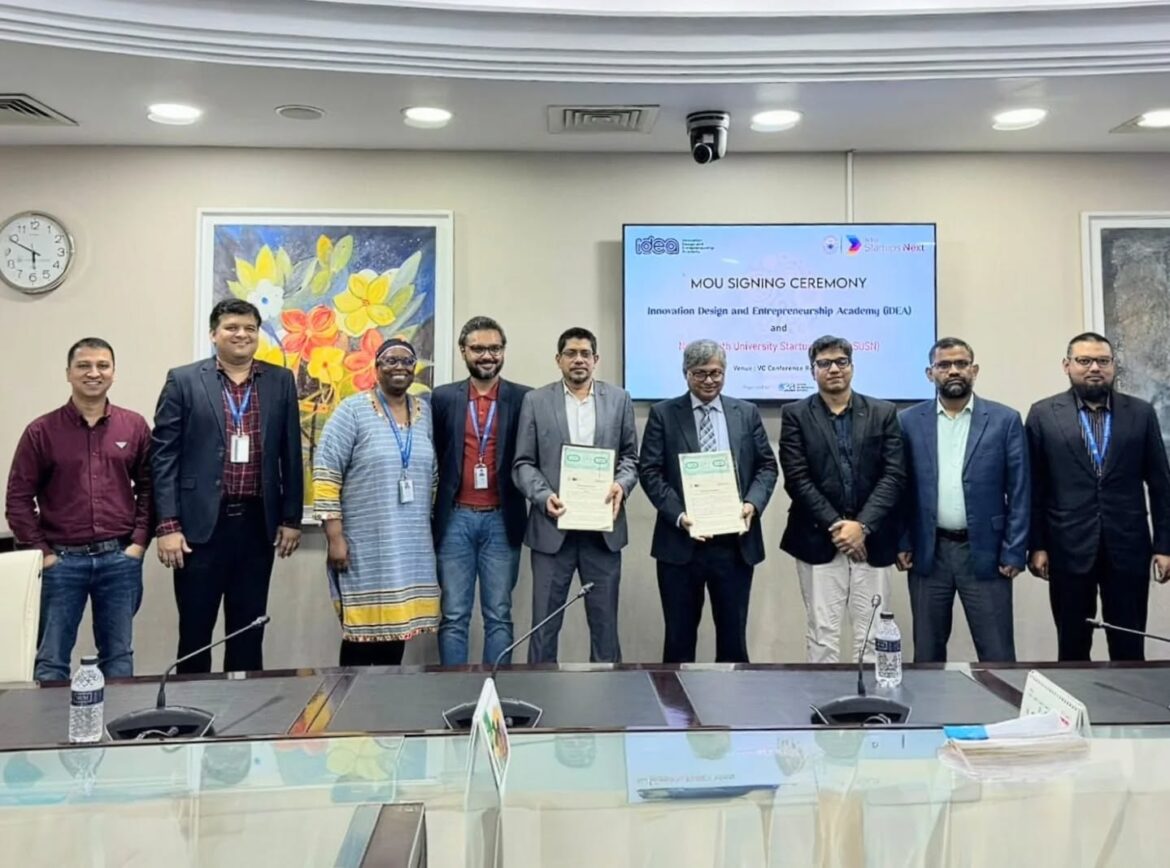NSU Startups Next and the iDEA Project of the ICT Division have signed a strategic memorandum of understanding to help early-stage entrepreneurs grow in Bangladesh, launching a new chapter in startup development and university-led innovation. This key event centered on creating joint programs, training, grants, research, boot camps and mentorship opportunities for student founders, setting a strong foundation for turning academic ideas into market-ready ventures. Under the new agreement, startups incubated by NSU will gain streamlined access to iDEA’s support systems, including pre‑seed grants, co‑working facilities, legal and PR guidance, and prototyping tools. Both institutions will collaborate on national‑level events, founder workshops and industry networking sessions designed to boost entrepreneurial capacity and facilitate connections with investors. University leaders and government officials present at the signing highlighted the value of aligning academic incubation with national innovation goals, pointing out that such public‑private partnerships are critical to building a sustainable ecosystem. NSU Startups Next has already supported more than two dozen early-stage startups across diverse sectors including healthtech, fintech, edtech, logistics and social enterprises through its Founders’ Lab and Flagship Incubator programs. The new MoU now links this university‑led effort with national accelerator platforms under iDEA, expanding opportunities for scale and exposure. Speakers emphasized the importance of giving young innovators tools to access funding, market insights and mentorship—especially female founders who can tap into Bangladesh’s growing consumer economy. The collaboration is expected to raise both the quality and reach of student‑driven ventures, setting Bangladesh on a stronger path toward regional competitiveness. Young entrepreneurs will benefit from coordinated support, while the startup scene gains from clear policy backing and resource sharing across institutions. Observers see the pact as a timely move that complements NSU’s previous partnerships—such as with Startup Grind Dhaka—to position student‑run startups on a global stage. The agreement also echoes momentum seen in NSU launching its third incubation cohort, with representatives from iDEA, BHTPA and venture capital firms attending to signal national endorsement. By bridging academia, government and industry, this initiative may produce better‐prepared ventures, more inclusive innovation and improved access for founders to funding and markets. If effectively implemented, the MOU could make NSU Startups Next a hub for turning classroom projects into scalable enterprises, nurturing job‑creating startups that drive Bangladesh’s tech‑driven economy forward.
44


